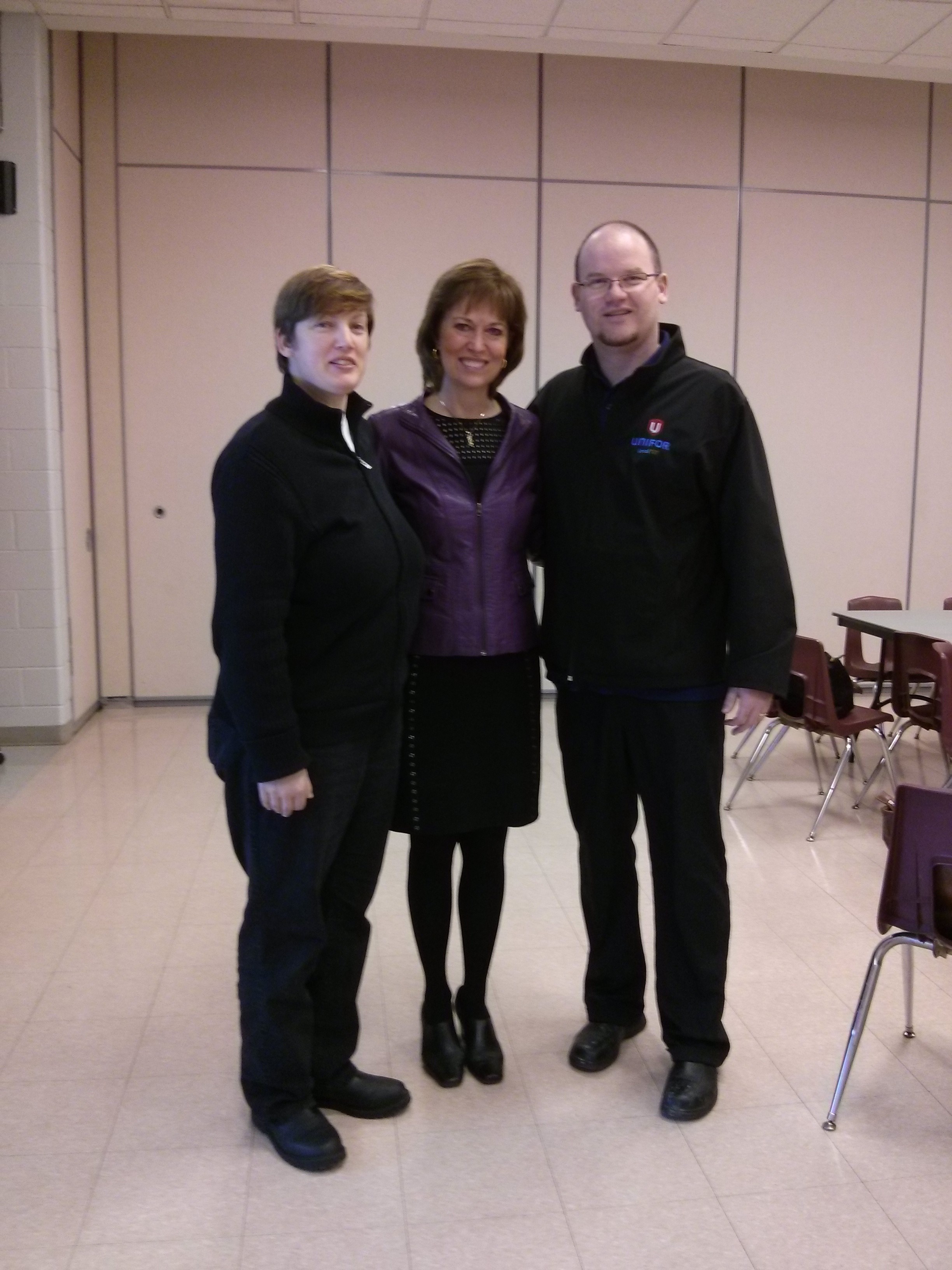Like this article? rabble is reader-supported journalism. Chip in to keep stories like these coming.
The focus on the 105th anniversary of International Women’s Day on March 8 is all about challenging others to pledge their empowerment of the women in their lives. The “Women’s Empowerment Leads to Equality” focus is spot-on because emancipated women and girls are better equipped to reach their full potential, which benefits them, their families, communities, and Canada.
Women and girls with access to a variety of educational options are more likely to work outside the home. With the means to support themselves, women and girls are able to make better financial decisions and improve their quality of life.
Women and girls who feel safe and secure in their homes and communities are more willing and able to participate in all aspects of life. Community involvement means they meet new people, are exposed to new perspectives, and have a wider variety of ways to achieve goals. Simultaneously, they are able to explore new opportunities, share their ideas and talents, and achieve fulfillment.
Women and girls need to freely exercise their right to participate in every aspect of democracy in order to have their needs, values, and rights met by those elected to public office. They need to see and be able to envision more women, including themselves, elected to every level of government.
After participating in an International Women’s Day roundtable co-chaired by Pam Damoff (Oakville-North Burlington MP and Status of Women, vice chair) and Karina Gould (Burlington MP and Parliamentary Secretary to the Minister of International Development) I have great hope that we’re well on our way to creating an equitable Canada.
Amongst 30-odd women sat Dave Millar, President of the Oakville District Labour Council. Millar gave a moving talk that should to be heard by every man in Canada and that definitely deserved a standing ovation. He spoke of Rita Thompson making history in 1977 when she became the first woman employed at the Oakville Ford plant.
Millar went on to discuss the issues he believes are key to empowering women. Included on his list was child care. Millar acknowledged this should be a parental concern, but reality is it still predominantly falls on the shoulders of working women.
Millar recognized, “In order to advance women in our society a universal child-care system must be implemented nationally. Never mind giving parents extra money monthly, let’s get direct money going to the daycares. Let’s get enough spaces for all of the children so that parents can go and find work suitable to their education and experience rather than settling for a lower paying job closer to home to take care of the family.”
Older Women
According to the Canadian Labour Congress, “For too many women in Canada, retirement means only financial struggle. Senior women are twice as likely to live in poverty as men. Thirty per cent of elderly women on their own live below the poverty line. Women are far more reliant on OAS and GIS than men. In 2011, 30 per cent of senior women’s total income was from OAS and GIS, compared to only 18 per cent for senior men.”
Millar believes, “How we treat the women of this country is setting the tone for children of today in becoming the next generation of adults. Let’s show the world, let’s show our children that all people should be treated with dignity, respect and let our kids grow up to be the positive change that is needed.”
I want Millar as my ally standing beside me while I lobby for gender equity. I also want Penny Estey, ironworker, standing on my other side.
Estey has spent the last nine years as a journeyman ironworker. The term journeyman is one Estey is comfortable using because, “It’s a status not a gender.” Estey is quick to point out that attracting girls and women into non-traditional trades is not a problem. The real issue is retention.
Increasingly, the trades are where young people are finding employment. It’s also where the gendered pay gap is virtually nonexistent thanks to unionization. Yet, according to Statistics Canada, young men in the trades still out number young women by three to one.
Like Thompson in her day, women entering non-traditional trades often find that they are the lone woman on the shop floor. However, more policies and procedures are in place today to deal with issues like workplace harassment.
Working in the trades often means travelling to where work can be found. This means women may be forced to choose between passing up a job in order to stay in their community with their children or leaving their families for long periods of time.
Estey is a spokesperson with Journeyman, an organization that promotes careers in construction and non-traditional career paths through mentorships, school and community outreach as well as support. She also promotes the Workplace Equality (W.E.) Awareness Ribbon initiative which aims to maximize recruitment and retention of women in non-traditional workplaces.
With fabulous men like Millar and women like Estey using a gender lens to look at human rights issues I have no doubt that we will empower women and girls and make Canada the equitable country it can be.
This International Woman’s Day who will you celebrate?
This article originally appeared in Leaders and Legacies March 7, 2016.
Like this article? rabble is reader-supported journalism. Chip in to keep stories like these coming.



